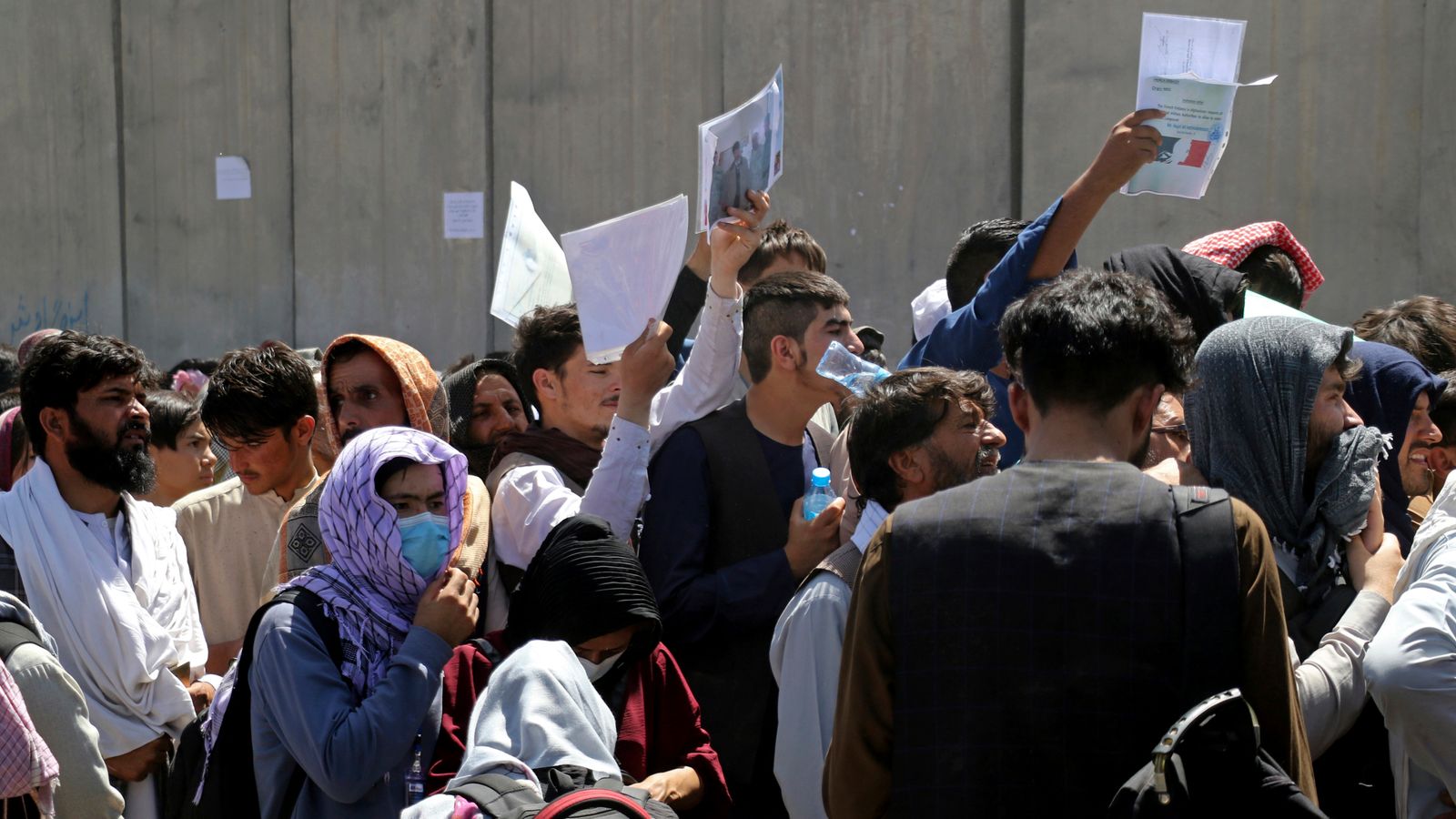More than 1,200 people – made up of hundreds of Afghan interpreters and their families – remain in Afghanistan as they were unable to get an evacuation flight out, the defence secretary has revealed.
Ben Wallace said there are 260 interpreters who worked for the British and were security checked, but never made it onto flights out of Afghanistan after the withdrawal of troops on 30 August.
“There are 260 principles left in Afghanistan – that’s 1,232 people if you include their families,” he told the House of Commons.
Mr Wallace said the Ministry of Defence (MoD) believes there are 900 further “credible cases” still in the country who could be eligible for the Afghan Relocations and Assistance Policy (ARAP).
Previously, the government said it was unsure exactly how many had not made it onto evacuation flights after about 15,000 people were airlifted out of Kabul by the UK.
The defence secretary added that 43 interpreters had managed to get to third countries, with a total of 163 people when including their families.
There are eight translators the MoD has been unable to establish communication with “despite numerous times of trying”, he said.
Afghanistan: Taliban fail to appoint any women in final list of government ministers
Anger over data breach of 250 Afghan interpreters stuck in Afghanistan
Afghanistan: Youngsters protest online against order telling girls not to go to school
Mr Wallace was answering an urgent question after it was revealed more than 250 interpreters who remain in Afghanistan were sent an email on Monday night in which all their email addresses could be seen.
It is feared they could be identified and targeted by the Taliban as a result.
He apologised for the mistake and said the person responsible for sending the “weekly catch-up” email, who he confirmed works for the MoD, had been suspended.
The defence secretary said: “To say I was angered by this was an understatement and I immediately directed investigations take place.”
He said it was a weekly catch-up email sent to those still in Afghanistan and it was “immediately recalled on identification of the breach” and an email sent advising people to delete the email and change their addresses, “many of whom have done”.
“It was a mass email, it didn’t contain their home addresses or anything. The photo profiles were ones that were in the profiles of the email addresses,” he said.
“Having looked at the email addresses, the vast majority weren’t specific names necessarily. That doesn’t change the fundamental impact that could have had and still could do.”
He said he has “instigated changes to improve information security” within the MoD and armed forces minister James Heappey is currently in the region speaking to neighbouring countries “to see what more we can do”.
The ARAP scheme will continue to operate and bring people back to the UK “for however many are eligible and however long it takes”, he added.






















